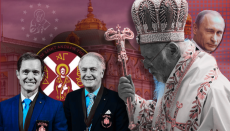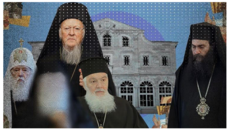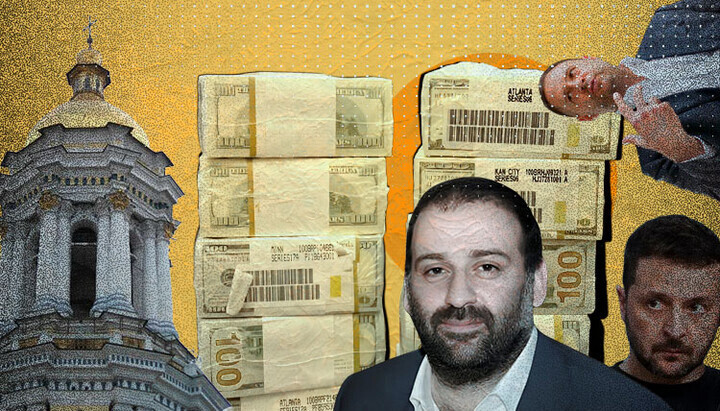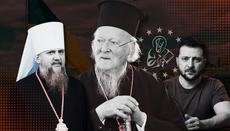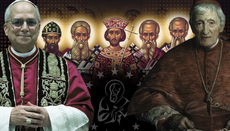Orthodox Times Criticizes Patriarch Daniel: What Are the Facts?
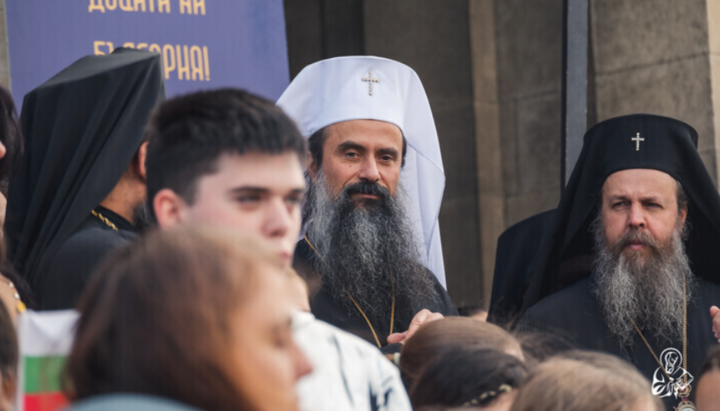
An analysis of Hieromonk Nikitas’ article and an examination of the Bulgarian Orthodox Church’s official position on the issue of the Orthodox Church of Ukraine (OCU)
On July 6, 2025, Orthodox Times published an article titled "The Patriarch of Bulgaria Throws Mud at the Spirituality of Mount Athos." The author is Hieromonk Nikitas of the Pantokrator Monastery on Mount Athos. The article harshly criticizes statements made by Patriarch Daniel of Bulgaria in a recent interview on the Bulgarian National Television program “Religion Today.” According to the author, the Patriarch’s position on the Ukrainian church crisis and his comments about Mount Athos are unacceptable and undermine the “true spirituality” of the Holy Mountain.
The article was reprinted by Bulgarian online media and has provoked widespread reaction among the faithful.
In the interview, His Holiness Patriarch Daniel emphasized that the Bulgarian Orthodox Church (BOC) remains in Eucharistic communion with all the local canonical Orthodox Churches and has not severed relations with any of them. In the context of today’s church conflicts—particularly the dispute between the Moscow Patriarchate and the Ecumenical Patriarchate—the Bulgarian position is clearly discernible: the BOC has not recognized the Orthodox Church of Ukraine (OCU), but has maintained communion with Constantinople.
Bulgarian clergy, including bishops, continue to participate in services with the Ecumenical Patriarch and attend celebrations in the Phanar on festive occasions.
After the granting of the tomos of autocephaly to the OCU by Ecumenical Patriarch Bartholomew, the Moscow Patriarchate broke communion with Constantinople and with all those who recognized the new Ukrainian structure. In response, the Bulgarian Orthodox Church chose a path of preserving ecclesiastical unity, while effectively postponing a decision on the OCU. In this way, the Bulgarian Patriarchate has tried to avoid a schism both within the BOC and along the emerging East-West divide in the Orthodox world.
As early as 2018, the Holy Synod of the Bulgarian Orthodox Church, under the late Patriarch Neophyte, established a special synodal commission for inter-Orthodox relations. At its meeting on October 5, the Synod empowered the commission—led by Metropolitan Cyprian of Stara Zagora—to study the situation in Ukraine in detail, including a letter from Patriarch Kirill of Moscow calling on the Bulgarian Church to take a stand.
The commission was tasked with gathering information, conducting research, and presenting a report to the Holy Synod regarding the newly formed Orthodox Church of Ukraine. To date, the Synod has not issued a final ruling on the matter and has not recognized the new Ukrainian structure. It continues to maintain Eucharistic communion with the canonical Ukrainian Orthodox Church (UOC) under Metropolitan Onuphry. It has also not complied with the Russian Patriarch’s request to convene a pan-Orthodox council on Ukraine.
At present, the majority of local Orthodox Churches have not recognized the Orthodox Church of Ukraine. These include:
- The Patriarchates of Antioch, Jerusalem, and Russia
- The Serbian, Bulgarian, Georgian, Polish, and Czech-Slovak Churches
- The Orthodox Church in America
All of these Churches question the canonicity of the OCU’s ordinations, noting that many of its clergy originate from schismatic groups previously excommunicated from the canonical Church—even by the Ecumenical Patriarchate itself. Many of these bishops were not ordained with the participation of canonical hierarchs.
Patriarch Theophilos III of Jerusalem has repeatedly stated that schism cannot be healed by an administrative act, but only through repentance and conciliar agreement within the Church. Similarly, the Patriarchate of Antioch has expressed concern over the unilateral nature of the decision, which was made without consulting the other local Churches. Antioch insists on pan-Orthodox consensus before taking such consequential steps affecting Church unity.
In this context, and in accordance with the BOC’s consistent policy since 2018, Patriarch Daniel’s remarks in the June 29, 2025 BNT interview represent not a personal opinion but an institutional and conciliar stance aligned with the established practice of the Bulgarian Church.
The Churches that have recognized the OCU include:
- Patriarchate of Constantinople
- The State Church of Greece
- The Archbishop of Cyprus (though disagreement remains within the Synod, they have not opposed his commemoration)
- The Patriarchate of Alexandria
Meanwhile, the Albanian Church has issued strong canonical critiques of the process by which the OCU was legitimized.
As for the claim that Mount Athos accepts representatives of the OCU, it must be clarified that Mount Athos is not an autocephalous Church, but a self-governing monastic community under the jurisdiction of the Ecumenical Patriarchate. Nevertheless, the overwhelming majority of Athonite monasteries refuse to receive clergy and monastics from the OCU. The only monastery that admitted Epiphanius Dumenko was Xenophontos. Following his visit, however, 39 Athonite and Greek monasteries issued a joint statement protesting attempts to use Mount Athos to legitimize uncanonical structures, and they insisted on upholding the sacred canons and the conciliar order of the Church.
Many abbots and elders with high spiritual authority—from monasteries such as Vatopedi, Dochiariou, Philotheou, and others—have clearly stated that accepting the OCU would mean allowing schism into the heart of Orthodox monasticism. Thus, Patriarch Daniel’s statement that OCU clergy are not accepted on Mount Athos reflects reality, not “propaganda.”
Regarding the claim that OCU churches are full and that the Bulgarian Patriarch is misinformed, this also does not correspond to reality. Numerous videos, photos, and news reports—including from OCU services themselves—show mostly empty churches, even when Epiphanius Dumenko is serving. At the same time, tens of thousands of faithful of the canonical Ukrainian Orthodox Church are praying outdoors or in improvised spaces after their churches were seized through force or administrative pressure.
In his interview, Patriarch Daniel also noted that the Kyiv Caves Lavra, a sacred site for all Orthodoxy, has been repurposed for cooking shows and secular events instead of prayer and spiritual life. This reality cannot be concealed with vague statements or accusations, for the pain of Orthodox Christians deprived of their churches speaks louder than any political declaration.
Critics of Patriarch Daniel forget that the Bulgarian Orthodox Church is not ruled autocratically. The Patriarch is first among equals in the Holy Synod, and all decisions are made conciliarly, with the participation of all metropolitans. When Patriarch Daniel says that the Bulgarian Church is not in communion with the OCU, he is stating a fact that reflects the conciliar will of the Church—not a personal opinion.
Let us recall the Patriarch’s own words from the same interview:
“We hope that through this communion, through this dialogue, time and opportunity will be given to see things more clearly... I believe that gradually things will fall into place and this problem will be overcome.”
As Metropolitan of Vidin, Patriarch Daniel had expressed firmer positions on the matter, but as Patriarch, he now bears the responsibility for preserving peace, unity within the Church, and the future of Orthodoxy in Bulgaria.
Patriarch Daniel does not need defending. The ill-willed words directed at him only deepen the trust and love the Orthodox faithful feel for their spiritual leader. The more falsehoods are hurled at him, the more brightly shine his humility, steadfastness, and devotion to God.
Today, as Orthodoxy faces many challenges, the Bulgarian Orthodox Church is led by a man who seeks peace, conciliarity, fidelity to the canons, and pastoral wisdom. This is not weakness—it is strength. And this strength, crowned with humility, is both a shield for the Church and a lamp for the faithful.
